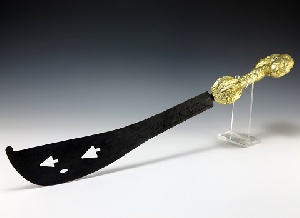 Democracy, as we practise it, is leaving a gap that we must acknowledge and address
Democracy, as we practise it, is leaving a gap that we must acknowledge and address
Before the coming of the Europeans and their system of ruling in their respective countries, Africa had its own way of managing its affairs in terms of developing its country. Nananom were highly respected and regarded as men of high integrity with good morals and were included in their respective areas regarding developmental agendas more than they are now. For one reason or another, it's fading.
Democracy, as we practise it, is leaving a gap that we must acknowledge and address.
Communal labour, for example, we used to do during that time to get rid of filth in our communities, to build hospitals, schools, markets and other development projects have died out because of the system of government being carried out.
It is of this reason that the Chief of Agyanoa, Nana Kwabena Kumi I who is the traditional leader in Agyanoa, which is in the Adonten part of Akuapem near Aburi in the Eastern region of Ghana has added his voice on the need for chiefs to be consulted in the development of the nation. The chief has weighed in on the current state of politics in Ghana and is suggesting that something needful has to be done for this great nation.
According to the astute ruler in the Akuapem land, if the steering of the affairs of the nation is only limited to politicians without recourse to Nananom, developmental projects will be limited to only the big cities in Ghana and would not be as rapid. He is of great conviction that, Nananom should be an integral part of decision making when developmental agenda is on the table.
The chief has for some time now observed that major facelift is mostly happening in the big cities in Ghana while the so-called smaller towns are neglected in developmental projects. He believes development should start from the grassroots which form the basis of our dear country.
Nana has observed that their subjects have to trek to the big cities/towns before they can access better healthcare and education since most of the smaller towns have no access at all. The major problem that poses this great country of ours is that, the president together with his political parties have between 4 to 8 years to rule the nation and if they engage in any developmental projects without consulting Nananom and they leave power, most of these major projects are left to rot in bushes at the expense of the taxpayers. As many people as we might have in Accra, Kumasi and other major cities, the total sum of other towns and villages are always greater and would be very beneficial to the nation if things like education, healthcare etc are made easier to access in the hinterlands. It should be a requirement not to make wards walk or travel too long to get better access to good healthcare and education.
Ignorance or lack of skill anywhere is a threat to the development of a nation and the world at large, as we are in a global economy. Recent events such as covid-19 have proven once again that healthcare and knowledge are things we can not bargain with and the only way to have this skills and knowledge is to educate our populace and to achieve this to the grassroots level is by bringing on board chiefs in their respective towns to help solve the developmental deficit in the villages, towns, cities and the country at large.
"Having said all these, if you look especially on the continent of Africa, it takes inclusiveness, longevity and persistence before our developmental agenda can be achieved. In our current 4 to 8-year term democracy, some necessary changes to our way of life cannot be made in a Presidential term and by only political party manifestos alone. The country needs a long-term developmental plan and since governments last only 8 years maximum, chiefs must play a vital role. Yes, there are MMDCEs whom some do a great job but they also have limited time and go with their governments. So to ensure longevity and continuity, Chiefs must actively be taking part in the building of a nation.
Having said this, it does not mean we don't recognize the impact and usefulness of the President and his government or the role of Chiefs now since some perform better. Let's not forget our culture and traditions since people largely have respect for their traditional rulers which is a plus for our future moving forward.
We, therefore, have the need to engage government and the government engage us so we can bridge this gap for a stronger nation going forward.